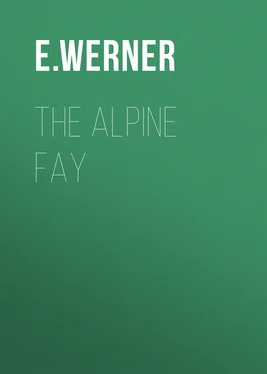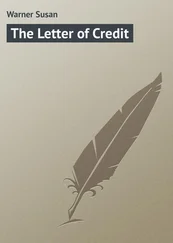E. Werner - The Alpine Fay
Здесь есть возможность читать онлайн «E. Werner - The Alpine Fay» — ознакомительный отрывок электронной книги совершенно бесплатно, а после прочтения отрывка купить полную версию. В некоторых случаях можно слушать аудио, скачать через торрент в формате fb2 и присутствует краткое содержание. Жанр: foreign_prose, foreign_antique, на английском языке. Описание произведения, (предисловие) а так же отзывы посетителей доступны на портале библиотеки ЛибКат.
- Название:The Alpine Fay
- Автор:
- Жанр:
- Год:неизвестен
- ISBN:нет данных
- Рейтинг книги:4 / 5. Голосов: 1
-
Избранное:Добавить в избранное
- Отзывы:
-
Ваша оценка:
- 80
- 1
- 2
- 3
- 4
- 5
The Alpine Fay: краткое содержание, описание и аннотация
Предлагаем к чтению аннотацию, описание, краткое содержание или предисловие (зависит от того, что написал сам автор книги «The Alpine Fay»). Если вы не нашли необходимую информацию о книге — напишите в комментариях, мы постараемся отыскать её.
The Alpine Fay — читать онлайн ознакомительный отрывок
Ниже представлен текст книги, разбитый по страницам. Система сохранения места последней прочитанной страницы, позволяет с удобством читать онлайн бесплатно книгу «The Alpine Fay», без необходимости каждый раз заново искать на чём Вы остановились. Поставьте закладку, и сможете в любой момент перейти на страницу, на которой закончили чтение.
Интервал:
Закладка:
"Are you, then, so fettered?" Erna asked, with gentle irony. "I should have thought you would find it easy to liberate yourself?"
"Liberate myself,–from what?"
"From a profession which you must certainly resign in the future."
"Do you consider that as a matter of course, Fräulein von Thurgau?" Wolfgang asked, nettled by her tone. "I cannot see what should induce such a course on my part."
"Why, your future position as the husband of Alice Nordheim."
The young engineer flushed crimson; he glanced angrily at the girl who ventured to remind him that he was marrying money. She was smiling, and her remark sounded like a jest, but her eyes spoke a different language, the language of contempt, which he understood but too well. He was not a man, however, to rest quietly under the scorn which pursues a fortune-hunter; he too smiled, and rejoined, with cool courtesy, "Pardon me, Fräulein von Thurgau, you are mistaken. My profession, my work, are necessities of existence for me. I was not made for an idle, inactive enjoyment of life. This seems incomprehensible to you–"
"Not at all," Erna interposed. "I perfectly understand how a true man must depend solely upon his own exertions."
Wolfgang bit his lip, but he parried this thrust too: "That I may accept as a compliment, for I certainly depended entirely upon my own exertions when I planned the Wolkenstein bridge, and I trust my work will bring me credit, even as 'the husband of Alice Nordheim.' But excuse me; these are matters which cannot interest a lady."
"They interest me," Erna said, bluntly. "My home was destroyed by the Wolkenstein bridge, and your work demanded yet another and far dearer sacrifice of me."
"Which you never can forgive me, I know," Wolfgang went on. "You reproach me for an unhappy accident, although your sense of justice must tell you that I am not to blame, that I do not deserve it."
"I do not blame you, Herr Elmhorst."
"You did in that most wretched hour, and you do it still."
Erna did not reply, but her silence was eloquent enough. Elmhorst appeared to have expected a denial, if only a formal one, for there was an added bitterness in his tone as he continued: "I regret infinitely that I should have been the one chosen to conduct the last business arrangements with Baron Thurgau. They had to be made, and their tragic conclusion lay beyond human foresight. It was not I, Fräulein Thurgau, but iron necessity that required of you the sacrifice of your home; the Wolkenstein bridge is not less guilty than I am."
"I know it," Erna observed, coldly; "but there are cases in which one finds it impossible to be just,–you should see that, Herr Elmhorst. You are now a member of our family, and may rest assured that I shall show you all the consideration due to a relative; for my feelings I cannot be called to account."
Wolfgang looked her full and darkly in the face: "In other words, you detest my work and–myself?"
Erna was silent: she had long outgrown the childish waywardness that had once prompted her to tell the stranger to his face that she could not endure him or his sneers at her mountain-legends. The young lady never dreamed of conduct so unbecoming, and she confronted him now in entire self-possession. But her eyes had not forgotten their language, and at this moment they declared that the girlish nature was quelled only in appearance,–it still slumbered untamed in the depths of her soul. There was a lightning-flash in them which uttered a quick, vehement 'yes' in answer to Wolfgang's last question, although the lips were mute.
It was impossible for Elmhorst to misunderstand it, and yet he gazed into the blue depths of those hostile eyes as if they had the power to hold him spell-bound; only for a few seconds, however, for Erna turned away, saying, lightly, "We certainly are having a very odd conversation, talking of sacrifice, blame, and hatred, and all on the day of your betrothal."
"You are right, Fräulein Thurgau; let us talk of something else," Wolfgang rejoined.
But they did not talk of anything else; on the contrary, an oppressive silence ensued. Erna seated herself and became apparently absorbed in an examination of the pictures on her fan, while her companion walked to the door of the next room as if to admire its magnificence. His face, however, no longer showed the proud satisfaction which had informed it a quarter of an hour before: he looked irritated and ill at ease.
Again the drawing-room door opened and Alice and Frau von Lasberg entered, the latter with a certain air of resignation; a darling wish of hers was to be frustrated to-night. She had looked forward to seeing Alice, whom she had trained entirely according to her own ideas, enrolled in the ranks of the aristocracy, and one of the young girl's distinguished suitors, the scion of an ancient noble line, had enjoyed the Baroness's special favour, and now Wolfgang Elmhorst was carrying off the prize! He was indeed the only man without a title whom Frau von Lasberg could have forgiven for so doing,–he had long since succeeded in winning her regard,–but it was nevertheless a painful fact that a man so perfectly well-bred, so agreeable to the strict old lady, possessed not the ghost of a title.
Alice, in a pale-blue satin gown rather overtrimmed with costly lace, and with a long train, did not look particularly well. The heavy folds of the rich material seemed to weigh down her delicate figure, and the diamonds sparkling on her neck and arms–her father's birthday gift to her–did not avail to relieve her want of colour. Such a frame did not suit her; an airy flower-trimmed ball-dress would have been much more becoming.
Wolfgang hastened to meet his betrothed, and carried her hand to his lips. He was full of tender consideration for her, and he was courtesy itself to the Baroness Lasberg, but the cloud did not vanish from his brow until the president returned and the guests began to arrive. Gradually the rooms were filled with a brilliant assemblage. Those present were indeed the foremost in the capital, the aristocracy by birth and by talent, those distinguished both in the world of finance and in the domain of art, the best names in military and diplomatic circles. Splendid uniforms alternated with costly toilets, and the throng glittered and rustled as only such an assemblage can,–an assemblage thoroughly in keeping with the magnificence of the Nordheim establishment.
The centre of attraction was found in the betrothed pair, or rather in the lover, who, an entire stranger to most of those present, was doubly an object of interest. He certainly was an extremely handsome man, this Wolfgang Elmhorst, no one could deny that, and there was no doubt of his capacity and his talent, but these gifts alone hardly entitled him to the hand of a wealthy heiress, who might well look for something more. And then, too, the young man appeared to take his good fortune, which would have fairly intoxicated any one else, quite as a matter of course. Not the slightest embarrassment betrayed that this was the first time he had been thus surrounded. With his betrothed's hand resting on his arm he stood proudly calm beside his future father-in-law, was presented to every one, received and acknowledged with easy grace all congratulations, and played admirably the principal part thus assigned him. He was entirely the son of the house, accepting his position as such as a foregone conclusion, and even at times seeming to dominate the entire assembly.
Among the guests was the Court-Councillor von Ernsthausen, a stiff, formal bureaucrat, who in the absence of his wife had his daughter on his arm. The little Baroness was charming in her pink tulle ball-dress, with a wreath of snow-drops on her black curls, and she was beaming with delight and exultation in having, after a hard combat, succeeded in being present at the entertainment. Her parents had at first refused to allow her to come, because Herr Gersdorf was also invited, and they dreaded the renewal of his attentions. The Herr Papa was armed to the teeth against attack from the hostile force; he kept guard like a sentinel over his daughter, and seemed resolved that she should not leave his side during the entire evening.
Читать дальшеИнтервал:
Закладка:
Похожие книги на «The Alpine Fay»
Представляем Вашему вниманию похожие книги на «The Alpine Fay» списком для выбора. Мы отобрали схожую по названию и смыслу литературу в надежде предоставить читателям больше вариантов отыскать новые, интересные, ещё непрочитанные произведения.
Обсуждение, отзывы о книге «The Alpine Fay» и просто собственные мнения читателей. Оставьте ваши комментарии, напишите, что Вы думаете о произведении, его смысле или главных героях. Укажите что конкретно понравилось, а что нет, и почему Вы так считаете.











